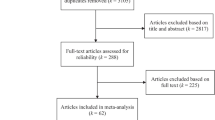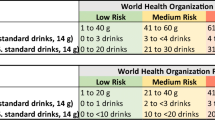Abstract
Objective
This study evaluated four of the major scales used to measure nicotine withdrawal symptoms plus one new scale.
Methods
Eighty-three smokers were randomly assigned to continue smoking (n=37) or abstain completely for 24 h (n=46), by which time the symptoms should become manifest. Diagnostic and Statistical Manual of Mental Disorders, Fourth Edition (DSM-IV) withdrawal symptoms (irritability, depression, restlessness, insomnia, anxiety, hunger and poor concentration) plus craving were measured at baseline and after 24 h. The scales tested were the Minnesota Nicotine Withdrawal Scale (MNWS), the Mood and Physical Symptoms Scale (MPSS), the Shiffman Scale (SS), the Wisconsin Smoking Withdrawal Scale (WSWS) and the newly developed Cigarette Withdrawal Scale (CWS).
Results
Measurement of withdrawal symptoms was robust in the case of all scales for total withdrawal score, irritability, restlessness, poor concentration and craving. The MNWS and CWS were less sensitive to depression; the WSWS and MNWS were less sensitive to insomnia; the MPSS was less sensitive to anxiety and hunger; the CWS and WSWS did not include restlessness as a distinct symptom; the SS did not include insomnia, and its scores tended to decline over time during ad lib smoking. Longer scales, using multiple items to measure each symptom, did not yield more reliable or accurate measurement than briefer scales.
Conclusions
To measure total withdrawal discomfort or craving, all of the scales examined can be recommended, and there is little to choose between them apart from length. When it comes to assessing individual symptoms, different scales have different strengths and weaknesses. There would be merits in developing a new questionnaire that combined the best features of the scales tested.
Similar content being viewed by others
References
American Psychiatric Association (1994) Diagnostic and statistical manual of mental disorders, 4th edn. American Psychiatric Association, Washington, DC
Etter JF (2005) A self-administered questionnaire to measure cigarette withdrawal symptoms: the cigarette withdrawal scale. Nicotine Tob Res 7(1):47–57
Etter JF (in press) A comparison of the psychometrics of three cigarette withdrawal scales. Addiction
Heatherton TF, Kozlowski LT et al (1991) The Fagerstrom test for nicotine dependence: a revision of the Fagerstrom tolerance questionnaire. Br J Addict 86(9):1119–1127
Hughes JR, Hatsukami D (1986) Signs and symptoms of tobacco withdrawal. Arch Gen Psychiatry 43(3):289–294
Hughes JR, Higgins ST et al (1994) Nicotine withdrawal versus other drug withdrawal syndromes: similarities and dissimilarities. Addiction 89(11):1461–1470
Royal College of Physicians (2000) Nicotine addiction in Britain. Royal College of Physicians, London
Schneider NG, Jarvik ME (1984) Time course of smoking withdrawal symptoms as a function of nicotine replacement. Psychopharmacology 82(1–2):143–144
Shiffman SM (1979) The tobacco withdrawal syndrome. In: Krasnegor NA (ed) Cigarette smoking as a dependence process. National Institute on Drug Abuse Research Monograph No. 23. US Government Printing Office, Washington, DC, pp 158–184
Shiffman SM, Khayrallah et al (2000) Efficacy of the nicotine patch for relief of craving and withdrawal 7–10 weeks after cessation. Nicotine Tob Res 2(4):371–378
Shiffman S, West R et al (2004) Recommendation for the assessment of tobacco craving and withdrawal in smoking cessation trials. Nicotine Tob Res 6(4):599–614
Tabachnick BG, Fidell LS (2001) Using multivariate statistics. Allyn and Bacon, Boston
Tiffany ST, Drobes DJ (1991) The development and initial validation of a questionnaire on smoking urges. Br J Addict 86(11):1467–1476
US Department of Health and Human Services (1988) The health consequences of smoking: nicotine addiction. A report of the surgeon general. United States Department of Health and Human Services, Rockville
Welsch SK, Smith SS et al (1999) Development and validation of the Wisconsin Smoking Withdrawal Scale. Exp Clin Psychopharmacol 7(4):354–361
West R, Hajek P (1997) What happens to anxiety levels on giving up smoking? Am J Psychiatry 154(11):1589–1592
West R, Hajek P (2004) Evaluation of the Mood and Physical Symptoms Scale (MPSS) to assess cigarette withdrawal. Psychopharmacology 177:195–199
West RJ, Hajek P et al (1987) Time course of cigarette withdrawal symptoms during four weeks of treatment with nicotine chewing gum. Addict Behav 12(2):199–203
West R, Hajek P et al (1989a) Time course of cigarette withdrawal symptoms while using nicotine gum. Psychopharmacology 99(1):143–145
West RJ, Hajek P et al (1989b) Severity of withdrawal symptoms as a predictor of outcome of an attempt to quit smoking. Psychol Med 19(4):981–985
World Health Organization (2002) World health report 2002. World Health Organization, Geneva
Author information
Authors and Affiliations
Corresponding author
Appendix: Withdrawal symptom measures and relationship between items and symptom scores
Appendix: Withdrawal symptom measures and relationship between items and symptom scores
Item | DSM-IV symptom plus urge to smoke |
Mood and Physical Symptoms Scale [MPSS; 5-point response scale (not at all, slightly, somewhat, very, extremely)] | |
Irritable | Irritability |
Restless | Restlessness |
Depressed | Depression |
Hungry | Increased appetite |
Poor concentration | Difficulty concentrating |
Anxious | Anxiety |
Poor sleep at night | Insomnia |
Strength of urges of smoke | Urge to smoke |
Time spent with urges to smoke | Urge to smoke |
Minnesota Nicotine Withdrawal Scale [MNWS; 5-point scale (none, slight, mild, moderate, severe)] | |
Angry, irritable, frustrated | Irritability |
Restless, impatient | Restlessness |
Depressed mood, sad | Depression |
Increased appetite, hungry, weight gain | Increased appetite |
Difficulty concentrating | Difficulty concentrating |
Insomnia, sleep problems, awakening at night | Insomnia |
Anxious, nervous | Anxiety |
Desire, craving to smoke | Urge to smoke |
Shiffman Scale | |
10-point scale (low to high) | |
Irritable | Irritability |
Frustrated, angry | Irritability |
Restless | Restlessness |
Depressed | Depression |
Sad | Depression |
Blue | Depression |
Miserable | Depression |
Hungry | Increased appetite |
Eat more | Increased appetite |
Increased appetite | Increased appetite |
Hard to concentrate | Difficulty concentrating |
Mentally sharp (reversed) | Difficulty concentrating |
Anxious | Anxiety |
Tense | Anxiety |
Wisconsin Smoking Withdrawal Scale [WSWS; 5-point scale (strongly disagree, disagree, neutral, agree, strongly agree)] | |
I have been irritable, easily angered | Irritability |
I have been bothered by negative moods such as anger, frustration and irritability | Irritability |
I have felt frustrated | Irritability |
I have felt upbeat and optimistic (reverse) | Depression |
I have felt sad or depressed | Depression |
I have felt hopeless or discouraged | Depression |
I have felt happy and content (reverse) | Depression |
Food is not particularly appealing to me (reverse) | Increased appetite |
I want to nibble on snacks and sweets | Increased appetite |
I have been eating a lot | Increased appetite |
I have felt hungry | Increased appetite |
I think about food a lot | Increased appetite |
My level of concentration is excellent (reverse) | Difficulty concentrating |
It’s hard to pay attention to things | Difficulty concentrating |
It has been difficult to think clearly | Difficulty concentrating |
I am getting restful sleep (reverse) | Insomnia |
I awaken from sleep frequently during the night | Insomnia |
I am satisfied with my sleep (reverse) | Insomnia |
I feel that I am getting enough sleep | Insomnia |
My sleep has been troubled | Insomnia |
I have felt impatient | Anxiety |
I have been tense or anxious | Anxiety |
I have felt myself worrying about my problems | Anxiety |
I have felt calm lately (reverse) | Anxiety |
I have frequent urges to smoke | Urge to smoke |
I have been bothered by the desire to smoke a cigarette | Urge to smoke |
I have thought about smoking a lot | Urge to smoke |
I have trouble getting cigarettes off my mind | Urge to smoke |
Cigarette Withdrawal Scale [CWS; 5-point scale (totally disagree, mostly disagree, more or less agree, mostly agree, totally agree)] | |
I am irritable | Irritability |
I get angry easily | Irritability |
I have no patience | Irritability |
I feel nervous | Irritability |
I feel depressed | Depression |
My morale is low | Depression |
I am eating more than usual | Increased appetite |
My appetite has increased | Increased appetite |
I have put on weight recently | Increased appetite |
I find it difficult to think clearly | Difficulty concentrating |
I find it hard to concentrate | Difficulty concentrating |
I find it hard to focus on the task at hand | Difficulty concentrating |
I have difficulty sleeping | Insomnia |
I have trouble falling asleep at night | Insomnia |
I feel worried | Anxiety |
I feel anxious | Anxiety |
The only thing I can think about is smoking a cigarette | Urge to smoke |
I miss cigarettes terribly | Urge to smoke |
I feel an irresistible need to smoke | Urge to smoke |
I would like to hold a cigarette between my fingers | Urge to smoke |
Rights and permissions
About this article
Cite this article
West, R., Ussher, M., Evans, M. et al. Assessing DSM-IV nicotine withdrawal symptoms: a comparison and evaluation of five different scales. Psychopharmacology 184, 619–627 (2006). https://doi.org/10.1007/s00213-005-0216-z
Received:
Accepted:
Published:
Issue Date:
DOI: https://doi.org/10.1007/s00213-005-0216-z




